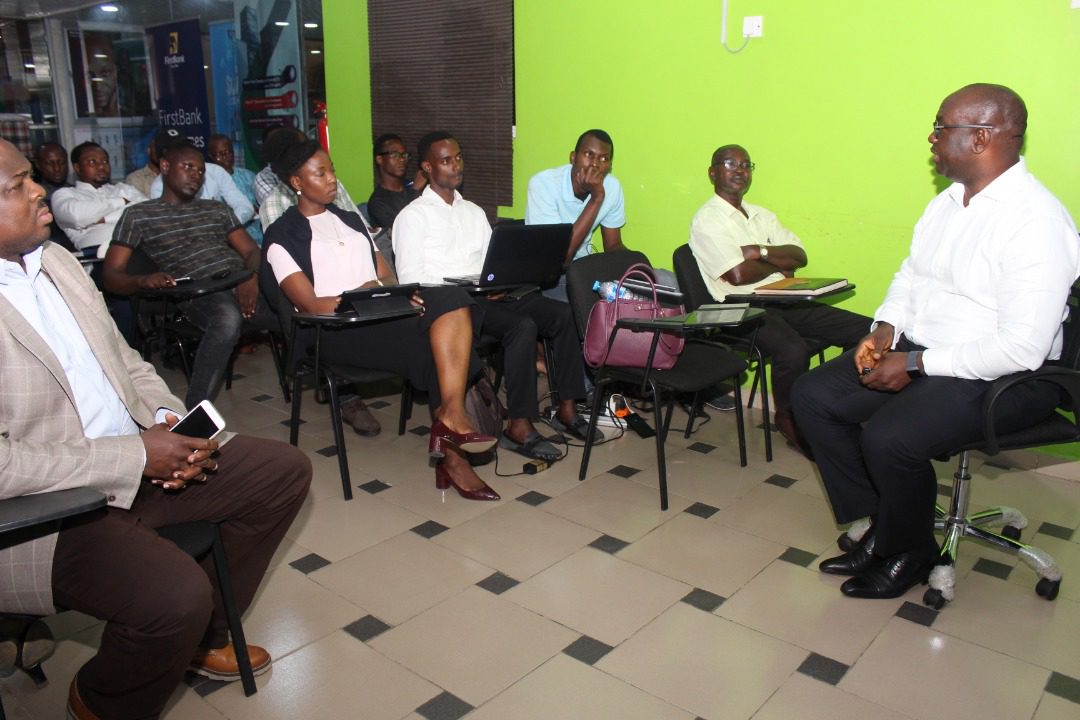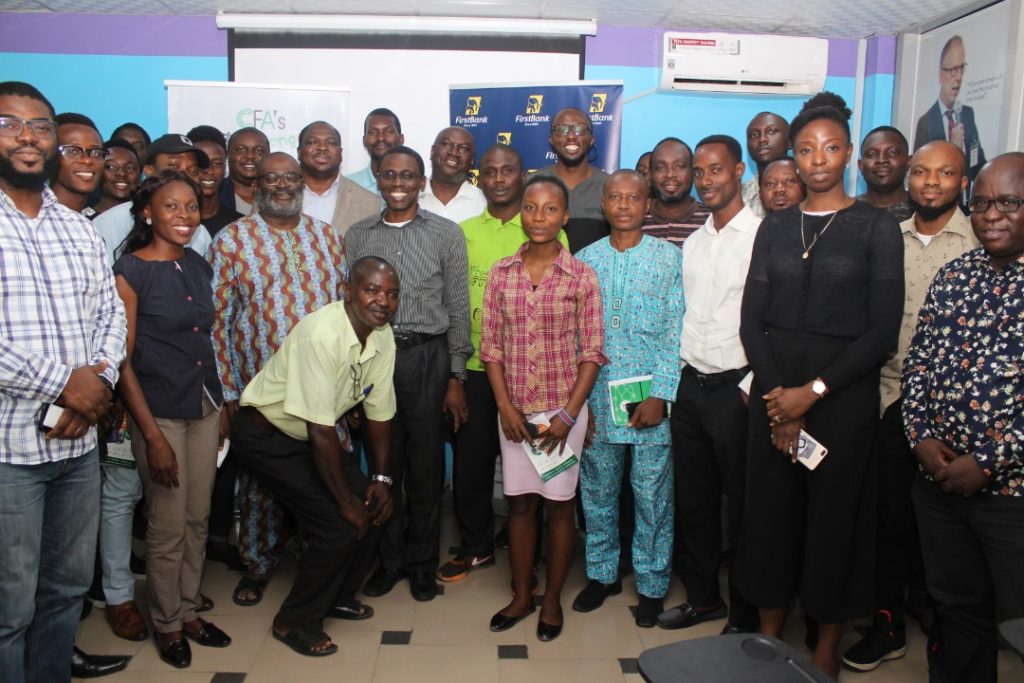The 17th Edition of CFA’s Startups Hangout held yesterday October 4th, 2018 at GoDo.ng, GRA, Ikeja. Themed: Startups – Leveraging on Institutional Support to Scale, the event was most insightful and essential to business growth.
We are live at the 17th CFA Startup Hangout organized by https://t.co/agSqUJuw2r
Today our Special Guest is Chuma Ezirim, Group Head, eBusiness, First Bank Nigeria.
Speaking on "Leveraging on Institutional Support to Scale."#Leverage2Scale pic.twitter.com/uAqUnwLXBr
— Creative Space Startups (@cspacestartups) October 4, 2018
This edition of the monthly event featured Chuma Ezirim, Head, eBusiness Group at First Bank, who shared from his wealth of experience of over 24 years in finance and administration to entrepreneurs on some of the ways startups can leverage institutional support to scale.
Chuma Ezirim heads eBusiness Group at First Bank. The Group develops and manages Electronic Channels and Card business in the Commercial Bank and its subsidiaries. He is a Certified International Cards & Payments Professional (CICPP) and Fellow, International Academy of Cards & Payments.
Related Post: #EveningwithFela: Obafela Bank-Olemoh Shared his Passionate Experience at the CFA’s Startups Hangout


One very vital point he made known is that customer acquisition and monetization of innovative ideas is tough and as such startup must bring out innovations are can offer a solution to the problem and be scalable/profitable.


Powerful forces are reshaping the banking industry. Customer expectations, technological capabilities, regulatory requirements, threats from fintechs, demographics and economics are together creating a fundamental sea change in digitalisation. As such startups must be generate disruptive innovations.
Conditions for Disruption:
1. The incumbent must be unable to profit by providing the rival solution.
2. Value is redistributed fundamentally and surplus largely goes to consumers.#Leverage2Scale pic.twitter.com/HsPa6uqJlo— Creative Space Startups (@cspacestartups) October 4, 2018
Related Post: CFA’s Startups Hangout: “Disrupt or Be Disrupted”, Here’s What Went Down
Focusing on the financial industry, he made it known that there are some conditions needed for disruption to take place and not all startups are able to meet up with these conditions. Which is why there are unique models/ways by which startups can partner and work with various corporate organizations to push their product.
From mobile payments/acceptance channels; cross-border transactions; operational risk/compliance; digital customer service/support; and real-time processing of payments, to big data and analytics; open banking; cloud computing; cybersecurity; blockchain tech; and AI/Robotics, the needs of financial institutions are expanse and Fintech startups can still key into them.
Some large institutions in the payments industry:
1. Banks
2. Switches/Processors
3. Card Associations
4. Telcos
5. Big Technology Companies (Google, Amazon, Facebook, etc)
6. FMCGs
7. Government MDAs
8. Large online retail companies.#LeverageToScale pic.twitter.com/OEq09UUW8m— Muktar Abiola (@smokyn_mutair) October 4, 2018
He also pointed out that in partnering/keying into institutional support and partnering with strategic leaders, startups must be wary of their:
- Deployment Models – Sale of Solution/White label+Implementation Cost+Annual maintenance fee/Hosted Platform (Exclusive or shared)
- Pricing Models – Revenue sharing/Fee-based (Subscriptions)/Freemiums.
Furthermore, he stated that for these partnerships to work, startups should consider the necessary licenses and environment their solutions are to serve as well as how their solutions would solve a problem for the corporate organization and how much money it will make or save for them.
Q: What does it take to expedite the process of getting an organization to adopt one's idea after pitching?
A: You have to ask yourself how your solution solves a problem for the organization and how much money it will make or save for them.#Leverage2scale pic.twitter.com/PgUJQUjVrT
— Creative Space Startups (@cspacestartups) October 4, 2018
After his talk, attendees were given the chance to ask questions the guest speaker on the theme and get experienced answers. The event culminated in the networking session where startups got the chance to ask each other questions, know each other better and see where they can collaborate together.






